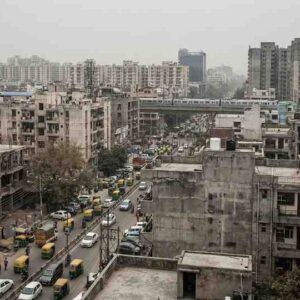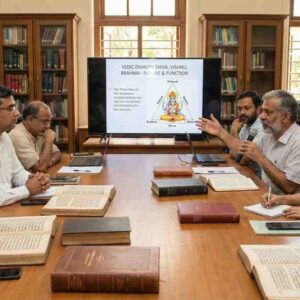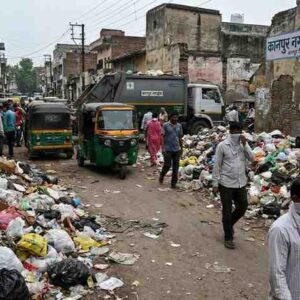Key Highlights:
- The Indian government is leveraging Artificial Intelligence (AI) to address waste management challenges in urban and rural areas.
- Initiatives like the Swachh Bharat Mission and Waste to Wealth Mission are integrating AI-driven solutions to optimize waste collection, segregation, and recycling.
- Partnerships with startups and local governments are fostering innovative AI applications in sustainable waste management.
Revolutionizing Waste Management with AI
India generates nearly 65 million tonnes of waste annually, posing significant challenges for cities and rural areas alike. To tackle these issues, the Indian government is adopting AI-powered technologies to make waste management smarter and more sustainable. By improving efficiency in waste collection, segregation, and recycling, these technologies are transforming how India manages its waste, ensuring cleaner and healthier communities.
Indian Government Initiatives Supporting AI in Waste Management
Swachh Bharat Mission (SBM)
Launched in 2014, the Swachh Bharat Mission aims to make India cleaner and greener. AI has become an integral part of this mission, enhancing waste management practices in urban and rural areas.
- Smart Waste Collection: AI-driven systems monitor waste bins and schedule pickups based on fill levels, reducing inefficiencies and ensuring timely collection.
- Citizen Participation: Apps powered by AI encourage citizens to report waste management issues, enabling local governments to address them quickly.
Waste to Wealth Mission
Under the Office of the Principal Scientific Adviser, the Waste to Wealth Mission promotes AI-driven innovations to convert waste into resources.
- Drain Master DM-80: This AI-powered indigenous excavator clears urban drains clogged with waste, reducing flooding and enhancing sanitation.
- Recycling and Resource Recovery: AI tools analyze waste streams to identify materials suitable for recycling, supporting a circular economy.
Meghalaya’s Robotic Cleaners
The government of Meghalaya has implemented AI-powered robots to clean water bodies like Umiam Lake. These robots autonomously collect waste, preserving the lake’s beauty while showcasing how AI can be used in environmental conservation.
Real-World Applications of AI in Waste Management
- AI-Enabled Waste Segregation:
Startups like Jaipur-based ECOWRAP are using AI systems to improve waste sorting, ensuring effective recycling of materials like plastics, paper, and metals. - Efficient Resource Allocation:
AI analyzes waste generation patterns to optimize the allocation of resources such as trucks, manpower, and processing units. - Digital Waste Tracking:
Platforms like Recykal connect waste generators with recyclers, using AI to track waste from collection to recycling, promoting accountability and transparency. - Data-Driven Planning:
AI tools provide insights into waste generation trends, enabling urban planners to design better waste management systems tailored to community needs.
Challenges and the Road Ahead
While AI-driven waste management offers immense promise, there are hurdles to overcome:
- Infrastructure Gaps: Many cities and rural areas lack the digital infrastructure required for AI adoption.
- Data Quality Issues: Accurate data is crucial for AI systems to function effectively in waste management.
- Public Awareness: Educating citizens about AI-driven waste management systems is vital for ensuring their participation.
To address these challenges, the government is investing in digital infrastructure under programs like BharatNet and running awareness campaigns through the Swachh Bharat Mission.
A Cleaner and Smarter Future
The Indian government’s use of AI in waste management is more than just a technological advancement—it’s a step toward building cleaner, more sustainable communities. By combining innovation with citizen participation, these initiatives are creating a future where waste is managed efficiently and resources are recovered responsibly. As AI continues to evolve, its role in shaping India’s waste management landscape will only grow stronger, ensuring a cleaner and greener tomorrow for all.












